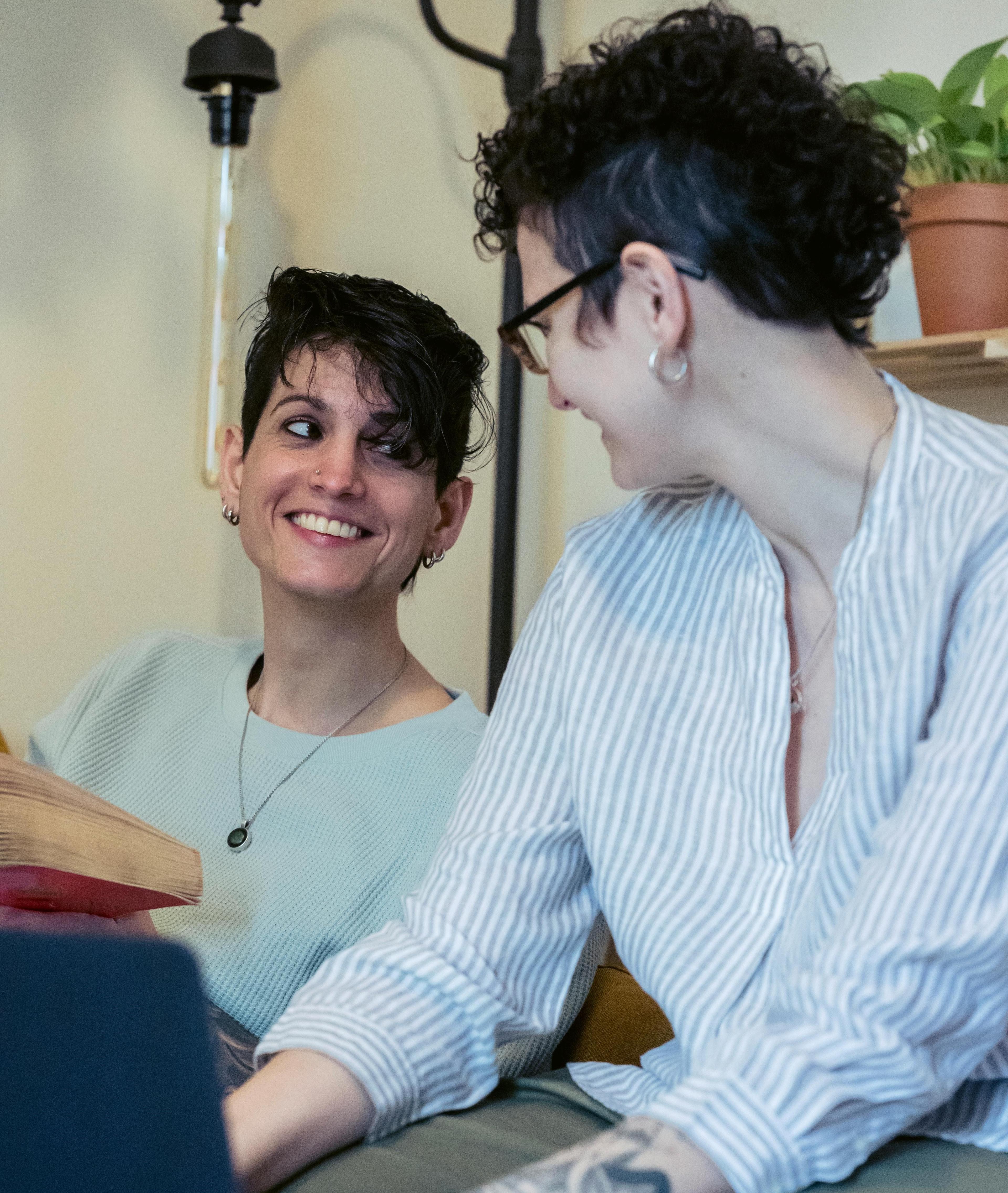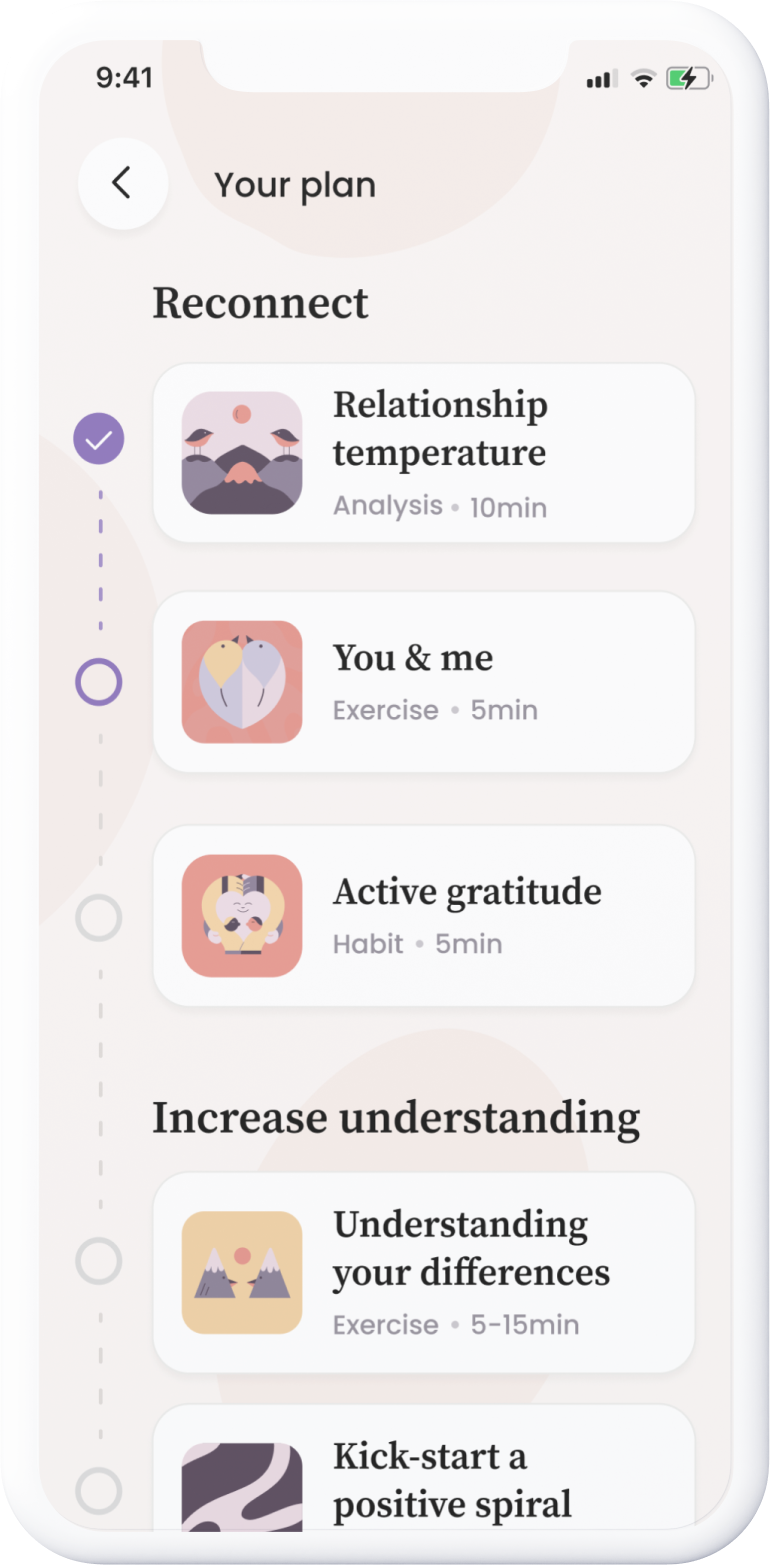
The importance of communication
We share our lives with our partners. It’s easy to assume that we know exactly what our partner is thinking and feeling at any given moment, even though we really have no idea. How we experience and interpret what’s happening around us, including what our partner does, depends largely on how we ourselves are currently feeling. That’s why we need to remind ourselves to stay curious about each other and keep communicating to reduce the risk of communication problems.
Communication problems in a relationship
Communication problems in a relationship, such as having different opinions or needs, or feeling bothered by something, can create tension. Feeling unheard or misunderstood is one of the most common communication issues. Without good communication, minor problems can quickly become major ones.
How do we get through to each other when we have different opinions, different needs, or when something is bothering us? It’s not always easy, that’s for sure! Feeling like you aren’t being understood or heard is one of the most common relationship issue. Without good communication, a minor problem can quickly get blown out of proportion and create distance and tension.
Communication takes many forms. In this context, it means expressing yourself in a way that your partner can understand and showing that you are capable of listening in a way that makes them feel comfortable sharing their own thoughts and feelings.
Three tips to improve your communication and overcome communication problems
1. Use "I" Statements
To have a productive conversation that highlights your needs without emphasizing your partner's shortcomings, start with yourself. Saying something like, "You never help with the meal planning! I'm always doing all the housework!" may make your partner feel attacked and defensive.
When your partner respond with “But I wash the dishes and do the laundry much more often than you do!”, the conflict can quickly escalate. Instead, focus on expressing how you feel, what you think, and how you react. It would be much less confrontational and far more constructive to say "It stresses me out when I'm solely responsible for planning meals" than "Why am I always the one who makes dinner?!"
2. Show interest
Really listening goes beyond hearing what the other person is saying. It means paying attention to how they say it, being curious about what their words mean about them, and being completely absorbed in what is going on in the other person, right then and there. It’s the opposite of just sitting there passively while your partner is speaking and waiting for your turn to talk. Really listening is thus a very active undertaking. Give your partner your full attention.
Put away your phone, and be ready and willing to make eye contact. Nod or make brief sounds of acknowledgment, like "Mm-hmm," to show you are listening and encourage your partner to continue opening up. You can also "mirror" your partner by recapping what they’ve told you, in your own words. For instance, "It seems like work has been stressful for you lately."
3. Stay in your partners experience
Resist the urge to immediately come up with solutions or offer advice. Also avoid the trap of sharing your own side of things right away, even if what your partner says generates thoughts and associations you want to share. Doing that shifts the focus away from their experience. If you can hold off for a bit, chances are higher that what you share will be taken the right way and that your partner will understand that you’re primarily interested in them.
Always assume that what your partner expresses or tells you is possible to understand and in some way reasonable, even if it seems incomprehensible (or unfair) to you in the moment. Try to stay curious, and to ask questions to understand more.
Ally - Help with communication problems in a relationship
In the app, you’ll get help and guidance to understand and address relationship problems. For example, you can get help on how to solve communication problems. With the different exercises in the app, you’ll be guided toward a stronger and more balanced relationship.








